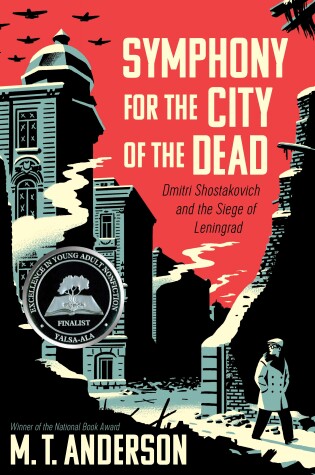Reviewed by meowstina on
I’ve always liked reading about World War II, whether it be fiction or non-fiction, so I was intrigued by this new historical telling. I don’t know if I missed the history class lesson or if this was something I’ve never been taught, but I was curious to read about how Russia fared during the war. The only thing I knew prior to this was Stalin’s name and how he was not a great person. Little did I know how truly horrible he was, and how horrific life in Russia was during the war. What happened to these people was devastating and heartbreaking. I’m so glad this book exists, because hopefully it’ll open other people’s eyes as it did mine.
The author mostly focuses on Dmitri Shostakovich’s life and how his music made a profound impact on his country and the world. Explorations of his life are contrasted with the political climate of the time and snapshots of life (and death) in Leningrad. Anderson does not tiptoe around these issues, and exposes the truth in an honest way to show how these circumstances were truly tragic and unfair.
The writing itself is okay, but sometimes gets a little choppy. Most of the time this is done for dramatic effect, to truly portray how horrible the situations written about were, but it can also mess with the flow of the story. I do like how everything that happened is written kind of like a novel, so that you feel as if you are right there with the people of the past. Some of the language and metaphors can get excessive, but for the most part it works.
I didn’t know this was YA history until it came out, but I don’t think it should be labelled so firmly. Anyone with an interest in history or music will find a well-told account of life in Russia during World War II, a shy composer, and the power of music.
Reading updates
- Started reading
- 17 September, 2015: Finished reading
- 17 September, 2015: Reviewed
